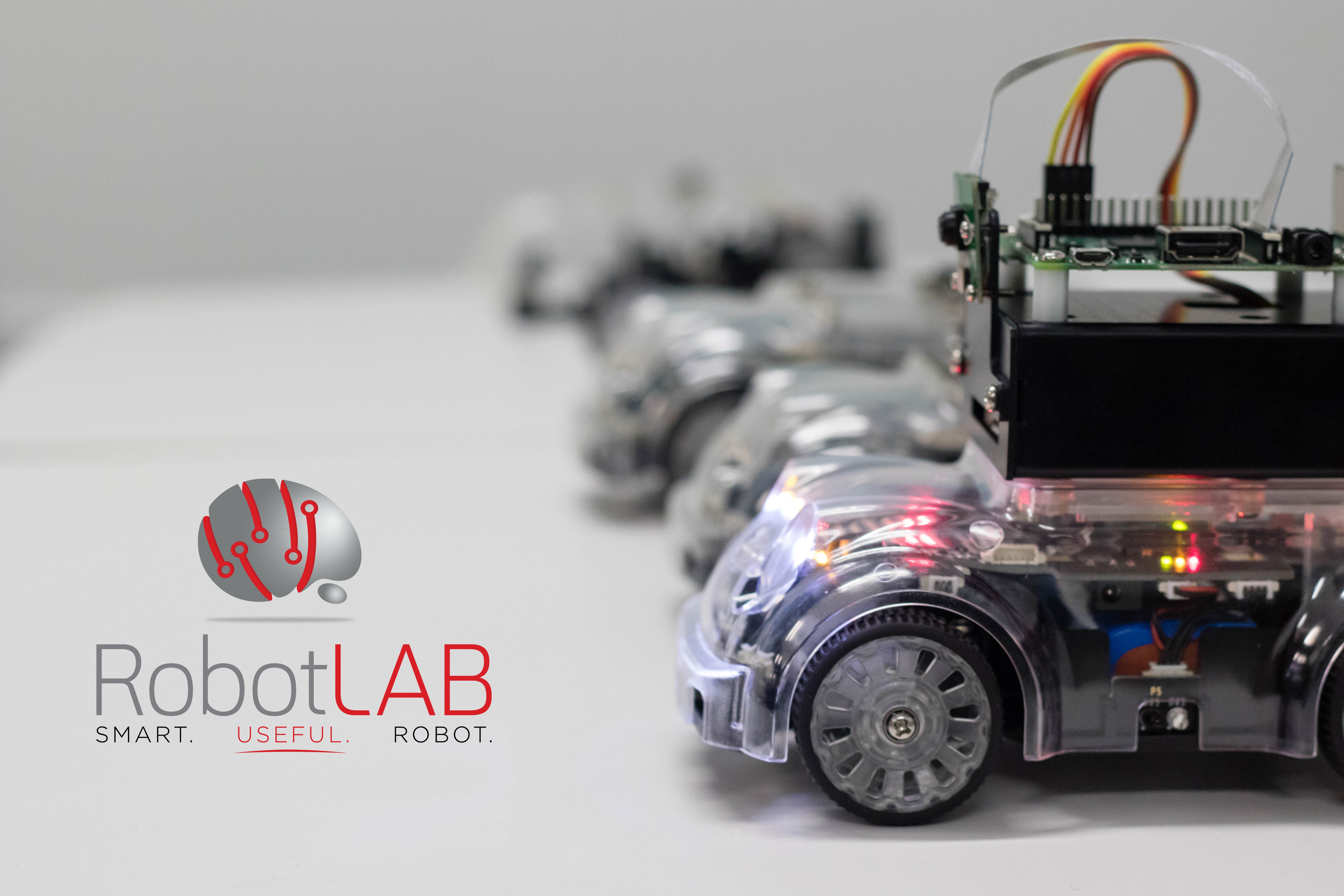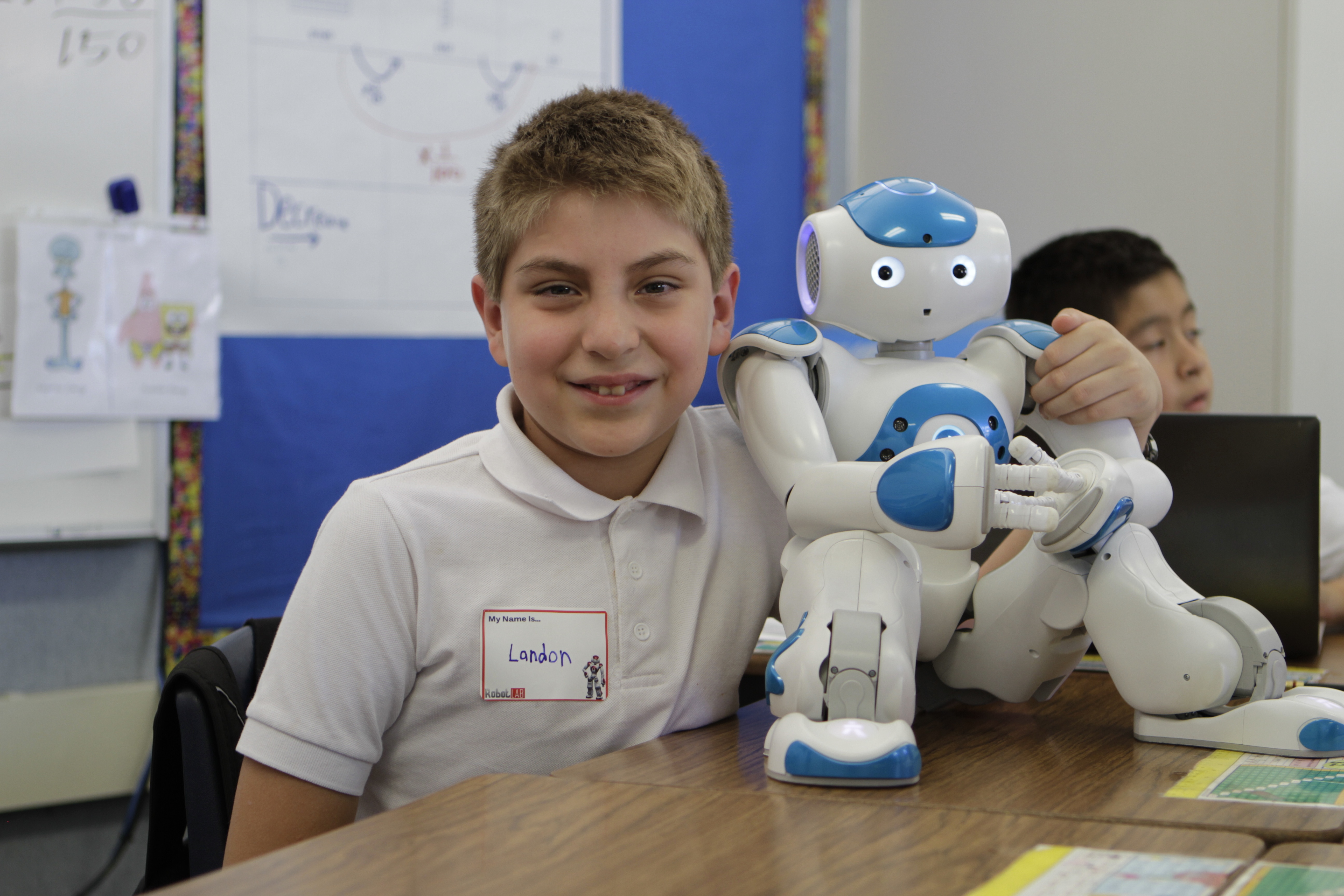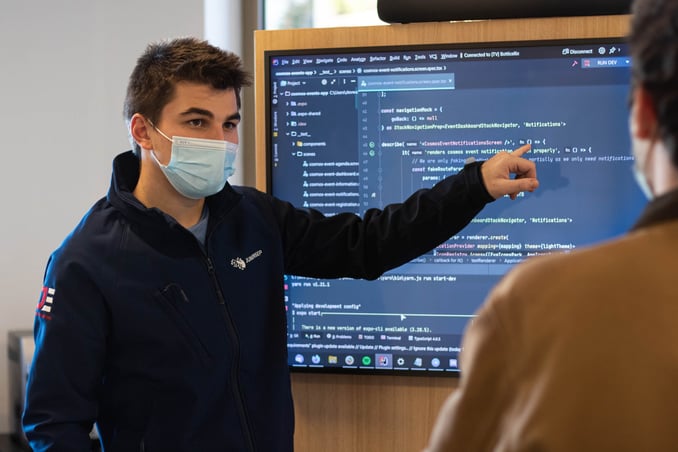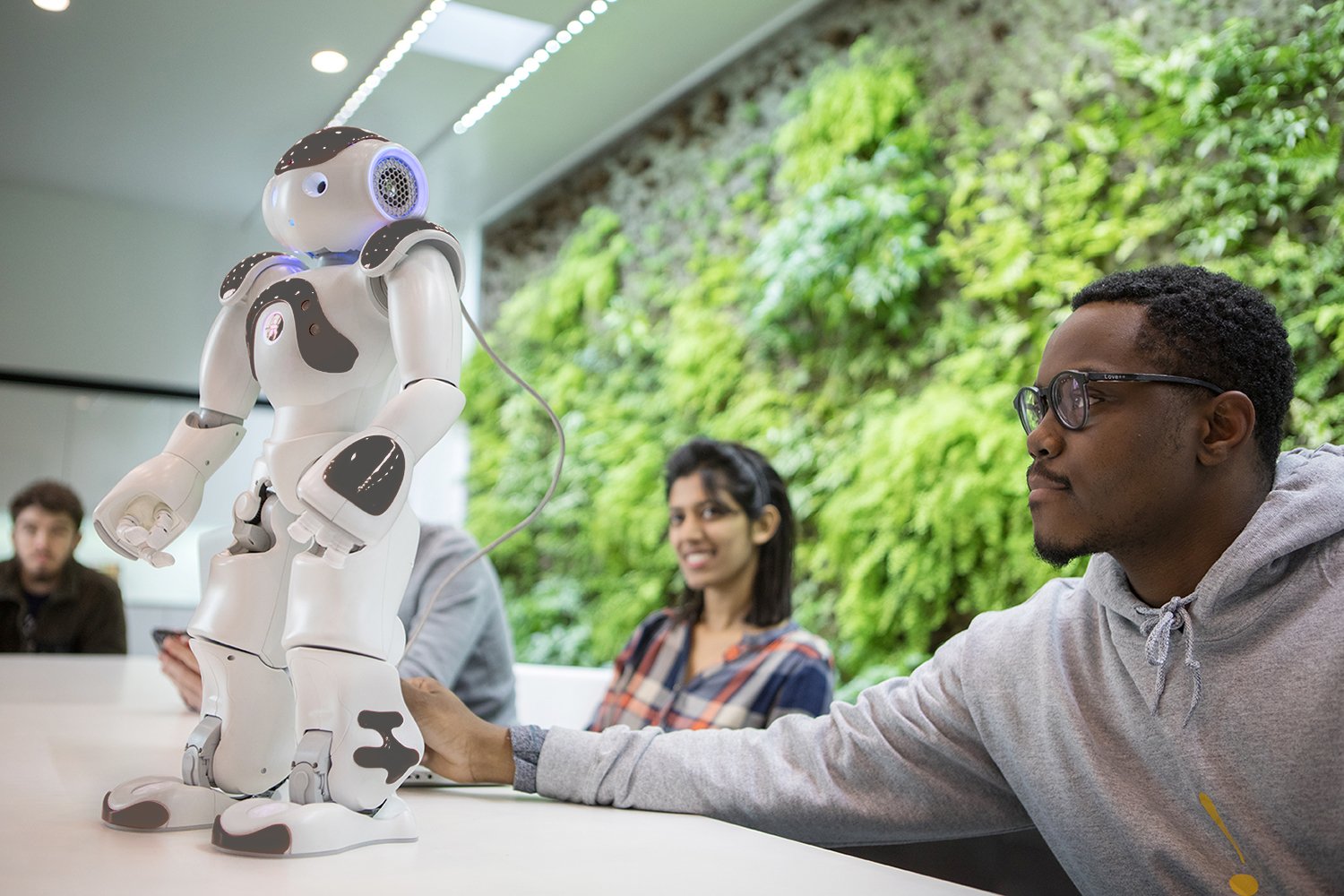Why Learn to Code? The Surprisingly Broad Benefits of Coding

It wasn’t long ago that coding was seen by many as an odd hobby for geeks tinkering with computers in their basements. But over the past several years, coding has progressed from a hobby to a critical career skill. Even better for those hobbyists? Employers have shown a willingness to pay a premium for the work of employees with coding and programming ability.
Knowing this, you might be wondering if coding is something you should consider. But there are still a lot of questions to be answered. How long does it take to learn to code? Why should I learn to code? We asked professionals from a wide variety of careers to help answer your questions and share their thoughts on the benefits of learning to code. Whether you’re a marketer, a mom, a business owner, or just curious about the craft, we’re ready to convince you why coding is an important skill worth adding to your toolbox.
- 1 Comments
- Dec 28, 2021 10:00:00 AM
- Posted by Maria Alejandra Calcetero
- Topics: Robotics, EdTech, STEM, Education, code, 21st Century Classroom, Special Education, Artificial Intelligence, data literacy, Coding, Robots,, students, programming, Technology, VR, Realidad Virtual, STEMchat, Edchat, AI, k12, Virtual Reality, virtual learning, classroom, Inteligencia Artificial, Literacy, STEM literacy
7 Benefits of STEM Education

- 0 Comments
- Dec 27, 2021 10:00:00 AM
- Posted by Maria Alejandra Calcetero
- Topics: Robotics, EdTech, STEM, Education, code, 21st Century Classroom, Special Education, Artificial Intelligence, data literacy, Coding, Robots,, students, programming, Technology, VR, Realidad Virtual, STEMchat, Edchat, AI, k12, Virtual Reality, virtual learning, classroom, Inteligencia Artificial, Literacy, STEM literacy
The Biggest Takeaways For The Post-Pandemic Future of Education
By Lisa O’Masta, President, Learning A-Z
 Lessons learned over the course of the pandemic have highlighted ways that schools and districts can best support teachers and students.
Lessons learned over the course of the pandemic have highlighted ways that schools and districts can best support teachers and students.
- 0 Comments
- Dec 17, 2021 10:00:00 AM
- Posted by Maria Alejandra Calcetero
- Topics: Robotics, EdTech, STEM, Education, code, 21st Century Classroom, Special Education, Artificial Intelligence, data literacy, Coding, Robots,, students, programming, Technology, VR, Realidad Virtual, STEMchat, Edchat, AI, k12, Virtual Reality, virtual learning, classroom, Inteligencia Artificial, Literacy, STEM literacy
Using Gamification to Ignite Student Learning

Gamification taps into the power of non-competitive play and students’ desire to improve their skills.
- 0 Comments
- Dec 16, 2021 10:00:00 AM
- Posted by Maria Alejandra Calcetero
- Topics: Robotics, EdTech, STEM, Education, code, 21st Century Classroom, Special Education, Artificial Intelligence, data literacy, Coding, Robots,, students, programming, Technology, VR, Realidad Virtual, STEMchat, Edchat, AI, k12, Virtual Reality, virtual learning, classroom, Inteligencia Artificial, Literacy, STEM literacy
The Power in STEM Internships
By Dan Matthews
 Photo by Jeswin Thomas on Unsplash
Photo by Jeswin Thomas on Unsplash
As students move into science, technology, engineering, and math (STEM) higher education, it’s important to understand their learning experiences need to be more diverse. STEM internships are a good tool in this regard. When students can make connections with industries, mentors, and practices this can boost the outcomes of their education in a variety of areas. As their course tutor, you have a role to play in facilitating and supporting these internships while they’re still at school.
We’re going to review why STEM internships can be a powerful tool, along with some of the ways you can help set your students on a positive path.
- 0 Comments
- Dec 15, 2021 10:00:00 AM
- Posted by Maria Alejandra Calcetero
- Topics: Robotics, EdTech, STEM, Education, code, 21st Century Classroom, Special Education, Artificial Intelligence, data literacy, Coding, Robots,, students, programming, Technology, VR, Realidad Virtual, STEMchat, Edchat, AI, k12, Virtual Reality, virtual learning, classroom, Inteligencia Artificial, Literacy, STEM literacy
Teaching Data Visualization to STEM Students
By Devin Partida

There’s no denying that our world is becoming more data-driven, and trying to teach young students the importance of understanding critical information is more important than ever before.
Aside from building critical thinking skills, students can benefit from STEM topics (science, technology, math, and engineering), which rely heavily on data and analytics. Setting kids up for success early on in their academic careers is vital.
K-12 educators have their work cut out for them trying to teach their students about data visualization. Here’s why it’s important to teach young students and some tips for teachers who need to cover this in their classrooms.
- 0 Comments
- Dec 14, 2021 10:00:00 AM
- Posted by Maria Alejandra Calcetero
- Topics: Robotics, EdTech, STEM, Education, code, 21st Century Classroom, Special Education, Artificial Intelligence, data literacy, Coding, Robots,, students, programming, Technology, VR, Realidad Virtual, STEMchat, Edchat, AI, k12, Virtual Reality, virtual learning, classroom, Inteligencia Artificial, Literacy, STEM literacy
Are Robots a Real Threat to Teachers in the Future?
By Tiffany Harper

People have long been fascinated by how robots work. And as technology is improving, it also offers new development opportunities for the robotics industry. There are already robots that are considered the future of logistics, while others are used to welcome and greet patients at many hospitals.
But according to reliable services, robots could make their entry into the educational domain too. And this is because the field of artificial intelligence is so deeply intertwined with that of robotics. Even though many educators and teachers do not see this as a plausible option, recent studies and technological advancements contradict this view.
The more the technology is advancing, the greater support it can offer to teachers and educators around the world. But can robots be good teachers? One can’t help but admit that human touch is always needed in the relationship between teachers and students. But can robots come with this human touch? Can they be great teachers?
- 0 Comments
- Dec 1, 2021 10:00:00 AM
- Posted by Maria Alejandra Calcetero
- Topics: Robotics, EdTech, STEM, Education, code, 21st Century Classroom, Special Education, Artificial Intelligence, data literacy, Coding, Robots,, students, programming, Technology, VR, Realidad Virtual, STEMchat, Edchat, AI, k12, Virtual Reality, virtual learning, classroom, Inteligencia Artificial, Literacy, STEM literacy
4 Ways a STEAM-centered Curriculum is Critical to Youth Education

Purposefully designing STEAM programming can make fields such as computing, AI, and space exploration interesting and approachable for youth.
- 0 Comments
- Nov 30, 2021 10:00:00 AM
- Posted by Maria Alejandra Calcetero
- Topics: Robotics, EdTech, STEM, Education, code, 21st Century Classroom, Special Education, Artificial Intelligence, data literacy, Coding, Robots,, students, programming, Technology, VR, Realidad Virtual, STEMchat, Edchat, AI, k12, Virtual Reality, virtual learning, classroom, Inteligencia Artificial, Literacy, STEM literacy
Importance Of Hands-On Experience During Academic Journey
By Stella Lincoln
 Image source by Unsplash
Image source by Unsplash
Why do companies mostly prefer experienced candidates over freshies? What do freshies lack that experienced candidates do not? This is what we call hands-on experience.
Education is not only about getting to know or having information about something. It's about experiencing a particular thing that you have learned. This is the reason universities and institutes often ask us to submit semester projects and final year projects so that we can practically apply what we have learned. Just like, e-learning is better than traditional learning, practical education is better than theoretical study.
In order to implement practical learning, the STEM education system is spreading all across the globe.
- 1 Comments
- Nov 24, 2021 10:00:00 AM
- Posted by Maria Alejandra Calcetero
- Topics: Robotics, EdTech, STEM, Education, code, 21st Century Classroom, Special Education, Artificial Intelligence, data literacy, Coding, Robots,, students, programming, Technology, VR, Realidad Virtual, STEMchat, Edchat, AI, k12, Virtual Reality, virtual learning, classroom, Inteligencia Artificial, Literacy, STEM literacy
15 Ways to Teach students to Solve Math Problems That Require Math Facts
Are you looking for ways to teach students to solve math problems that require math facts? If so, keep reading.
- 0 Comments
- Nov 23, 2021 10:00:00 AM
- Posted by Maria Alejandra Calcetero
- Topics: Robotics, EdTech, STEM, Education, code, 21st Century Classroom, Special Education, Artificial Intelligence, data literacy, Coding, Robots,, students, programming, Technology, VR, Realidad Virtual, STEMchat, Edchat, AI, k12, Virtual Reality, virtual learning, classroom, Inteligencia Artificial, Literacy, STEM literacy
Relevant Posts
Popular Posts
Subscribe to Email Updates
-
I Want To Learn MoreADDITIONAL INFORMATION



